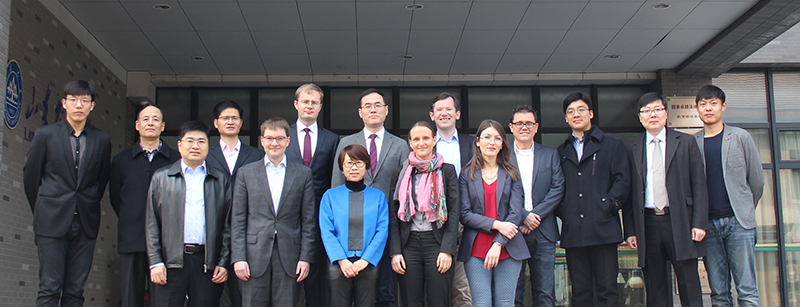Thirteen constitutionalists from China and Europe have called for a stronger focus on interpersonal and business relationships when analysing constitutions. This is one result of the “Interactions and Basic Rights – Relationships as Elements of Constitutional Conceptions in China and the EU” workshop at Shandong University in Jinan on 18 March 2017. Prof. Dr Roland Broemel from the University of Hamburg organised the conference with the support of the China-EU School of Law.

Traditionally, basic rights protect the individual citizen against the state. However, the legal position of an individual is strongly influenced by his or her interaction with other people. “Relationships between people have a great impact on their rights and duties,” explains Broemel. Family members, for instance, enjoy special protections in many constitutions. “A systematic analysis of constitutional contexts should take this into account.” At the workshop, legal scholars from China, Spain, Poland and Germany systematically examined the role of relationships in the constitutions of the People’s Republic of China and the European Union. They focused on fields such as marriage and family, minorities and personal data. Their results now provide a basis for showing the differences between European and Chinese constitutional cultures. The results of this workshop will be published in the China-EU Law Journal of the China-EU School of Law.

The China-EU School of Law in Beijing, founded in 2008, is a platform for legal dialogue between China and Europe. It aims to foster mutual understanding of the other’s legal system. For this reason, the China-EU School of Law facilitates not only education and training for law students and practitioners, but also legal research with scholarships and research grants.
The University of Shandong was founded in 1901 as an Imperial College in the city of Jinan 400 kilometers south of Beijing. Today, with more than 60,000 students, it is one of the largest universities in China. In the Chinese Ministry of Education’s “211 project” elite programme, it was selected as one of China’s top 100 universities.
